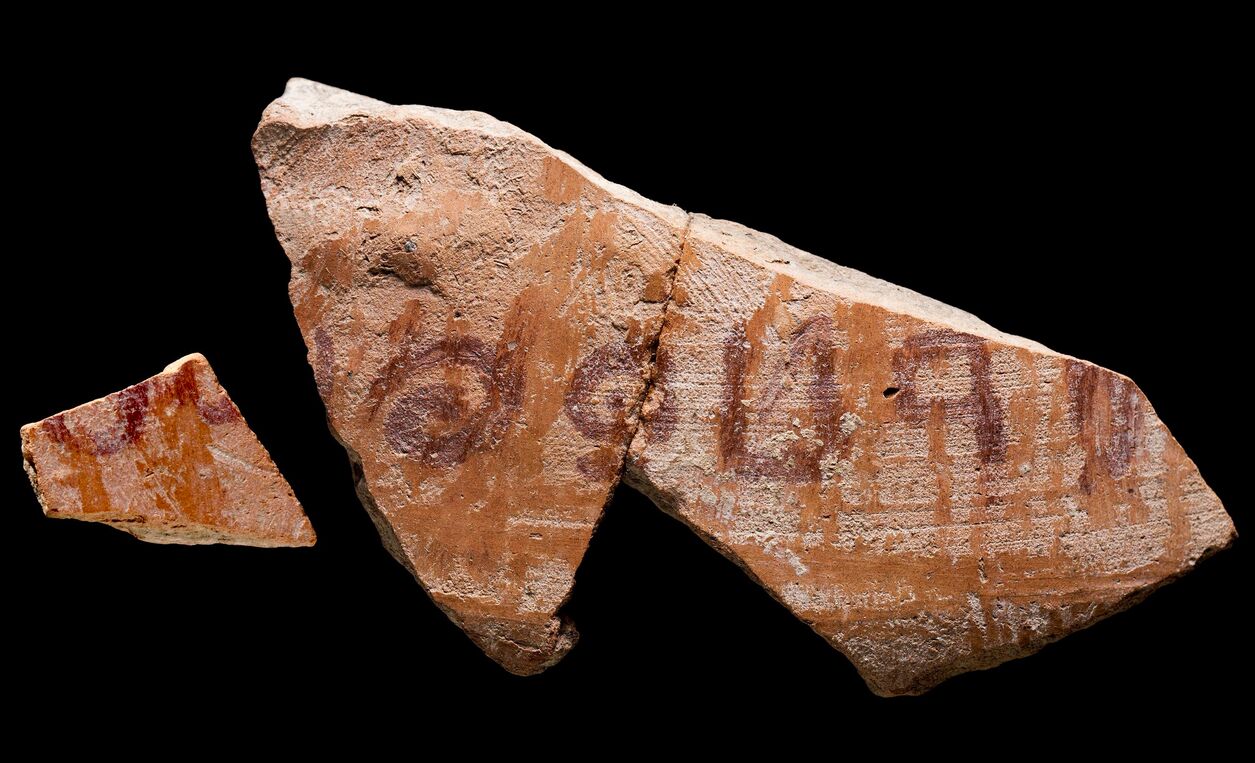Khirbet al-ra’i, israel
For the first time in history, archaeologists excavating in southern Israel have uncovered an inscription bearing the name of a biblical period judge.
The 3,100-year-old inked pottery inscription bears the name of Jerubbaal, the lesser-known name for Gideon (Judges 7:1), the famed judge of Israel who routed the Midianites with just 300 men. That battle, recounted in Judges 6-9, took place in the Valley of Jezreel by the Harod Spring, about 120 kilometers north of Khirbet al-Ra’i, leading archaeologists Prof. Yosef Garfinkel and Saar Ganor to speculate that the clay vessel may have belonged to another Jerubbaal. Nevertheless, they do not rule out the possibility that the inscription does directly refer to the biblical judge.
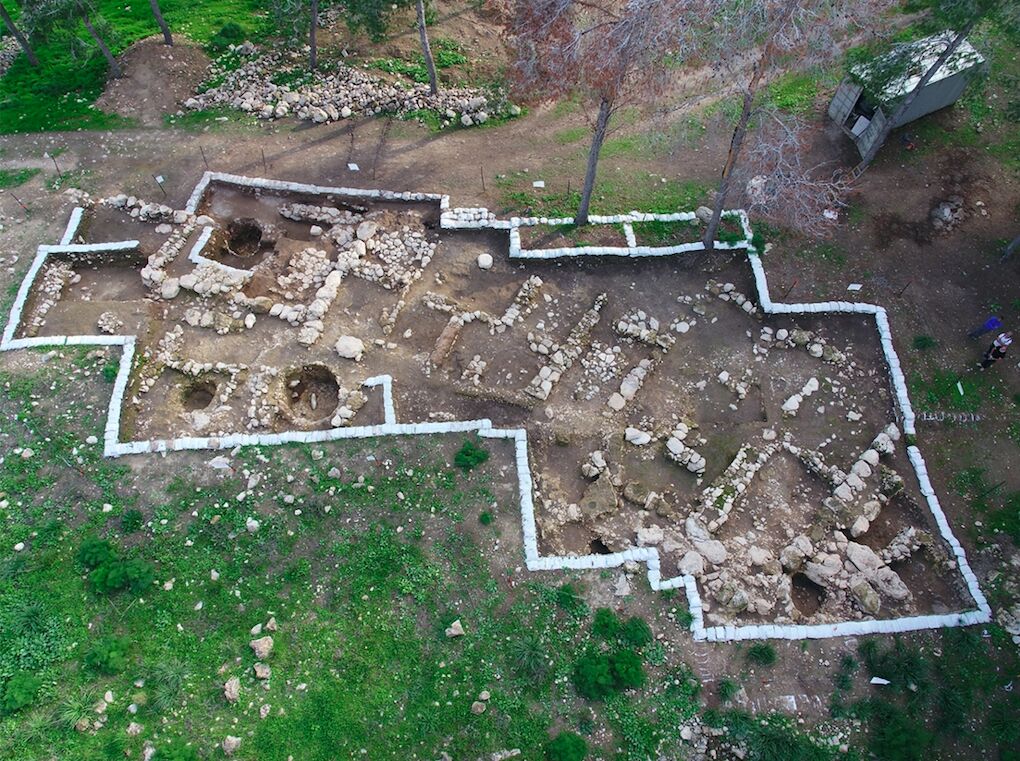
“In view of the geographical distance between the Shephelah and the Jezreel Valley, this inscription may refer to another Jerubbaal and not the Gideon of biblical tradition, although the possibility cannot be ruled out that the jug belonged to the judge Gideon. In any event, the name Jerubbaal was evidently in common usage at the time of the biblical Judges,” explained Garfinkel and Ganor in a press release.
The inscription was uncovered in the 2019 season at Khirbet al-Ra’i, an excavation site in the lowlands of Judea, just 4 kilometers to the west of Tel Lachish. Critically, the inscribed vessel was found in an archaeological context from the time period of the judges—the late 12th century b.c.e. “The name Jerubbaal only appears in the Bible in the period of the judges, yet now it has also been discovered in an archaeological context, in a stratum dating from this period,” the archaeologists noted.
The ink inscription was made on a small jug that held about one liter of liquid. Archaeologists assume that the jug may well have contained a precious liquid such as oil, perfume or medicine.
According to Prof. Christopher Rollston, epigraphy expert from George Washington University (Washington, d.c.) who analyzed the pottery shard, the inscription bears the “letters yod (broken at the top), resh, bet, ayin, lamed, and remnants of other letters indicate that the original inscription was longer.” Put together, these spell the ancient name Jerubbaal, given to Gideon by his father.
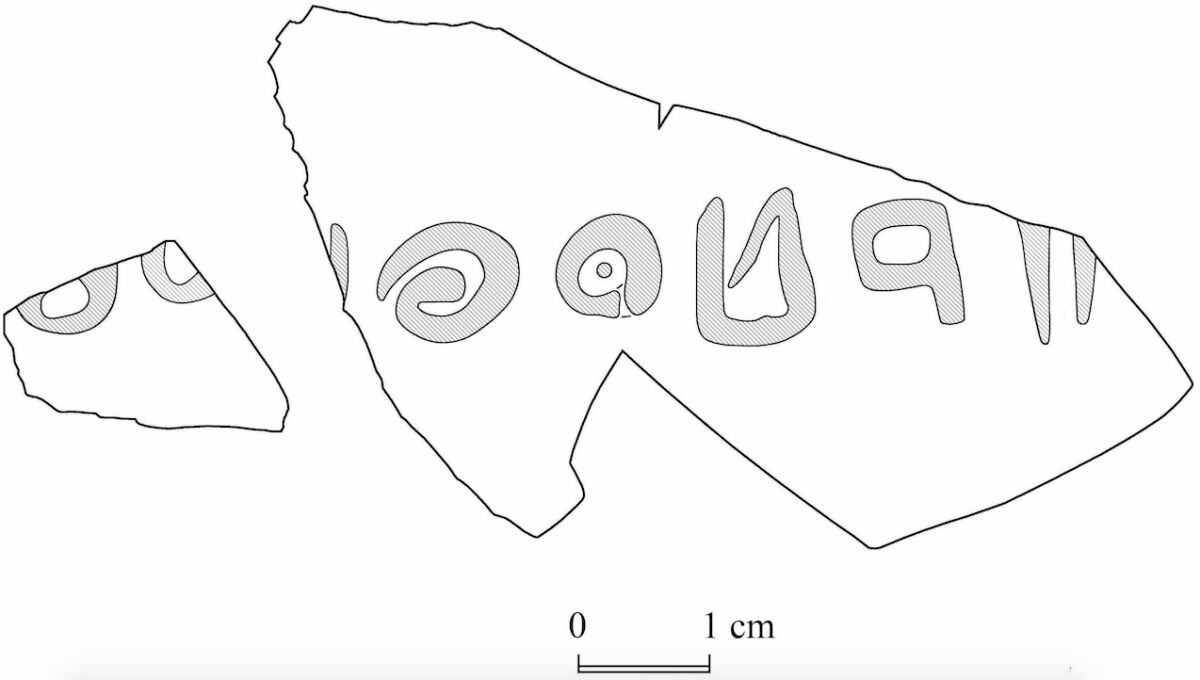
Before Gideon’s battle with the Midianites, the book of Judges describes a test God required of Gideon, which would lead to his naming as Jerubbaal. “And it came to pass the same night, that the Lord said unto him: ‘Take thy father’s bullock, and the second bullock of seven years old, and throw down the altar of Baal that thy father hath, and cut down the Asherah that is by it; and build an altar unto the Lord thy God upon the top of this stronghold, in the ordered place, and take the second bullock, and offer a burnt-offering with the wood of the Asherah which thou shalt cut down” (Judges 6:25-26).
Gideon was faithful in this task of destroying the altar of Baal. The next morning, men of the city of Shechem wanted to put Gideon to death. Gideon’s father, Joash, interceded for his son, declaring that if Baal is a god, he should be strong enough to avenge his broken altar and put to death Gideon himself. “Therefore on that day he was called Jerubbaal, saying: ‘Let Baal contend against him, because he hath broken down his altar’” (verse 32).
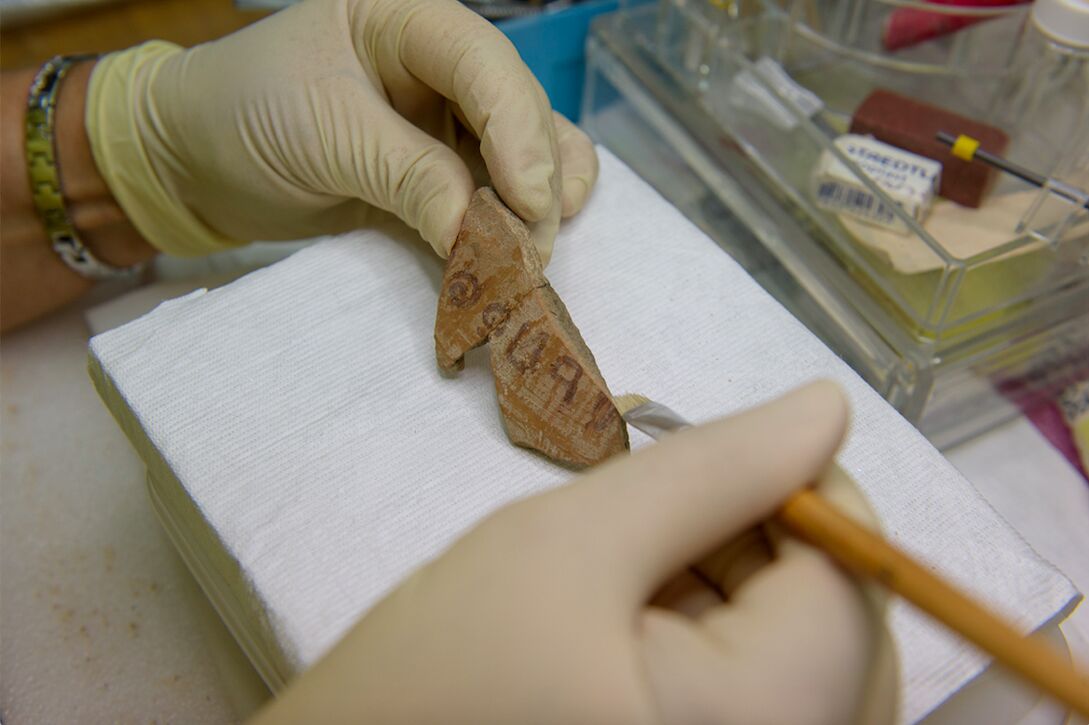
Of course, Gideon did not suffer any such “retribution” from Baal, and went on in the next chapter to be used by God to deliver the Israelites from Midianite oppression, leading to forty years of relative peace. So powerful was Gideon’s effect on the nation, that the men of Israel desired to make Gideon’s family into a kingly dynasty to rule over them. Gideon refused to change God’s system of government, saying, “I will not rule over you, neither shall my son rule over you; the Lord shall rule over you” (Judges 8:23).
Nevertheless, the fact that Israel asked Jerubbaal to be king indicates that he likely had acclaim that stretched beyond the northern territory normally associated with Gideon. And perhaps, as related to this inscription discovered at Khirbet al-Ra’i, that renown spread all the way to the lowlands of Judah.
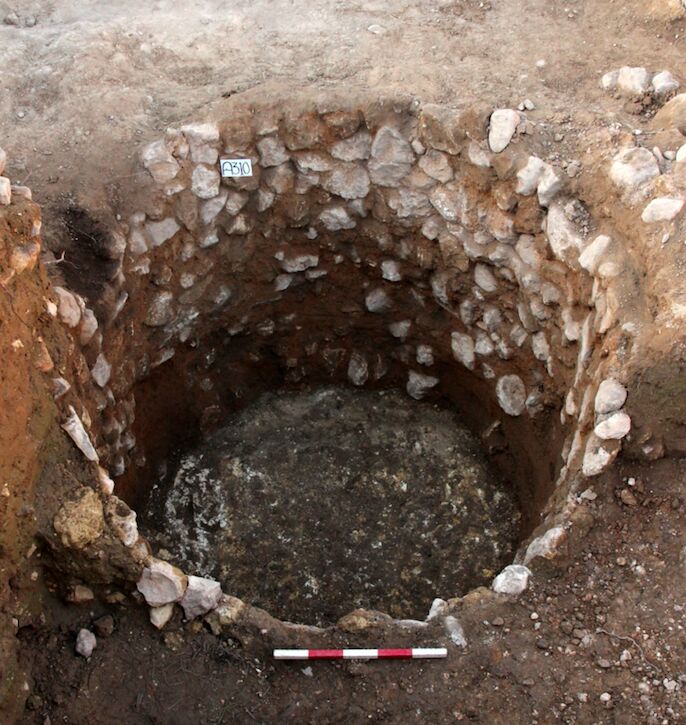
The excavations at Khirbet al-Ra’i are currently ongoing, under the direction of Prof. Yosef Garfinkel, Saar Ganor, Dr. Kyle Keimer and Dr. Gil Davies, and they are conducted on behalf of the Institute of Archaeology at the Hebrew University of Jerusalem, the Israel Antiquities Authority, and Macquarie University in Sydney, Australia.
Garfinkel and Ganor summarized the significance of the discovery: “There is considerable debate as to whether biblical tradition reflects reality and whether it is faithful to historical memories from the days of the Judges and the days of David,” say the archaeologists. “The name Jerubbaal only appears in the Bible in the period of the judges, yet now it has also been discovered in an archaeological context, in a stratum dating from this period. In a similar manner, the name Ishbaal, which is only mentioned in the Bible during the monarchy of King David, has been found in strata dated to that period at the site of Khirbet Qeiyafa. The fact that identical names are mentioned in the Bible and also found in inscriptions recovered from archaeological excavations shows that memories were preserved and passed down through the generations.”
